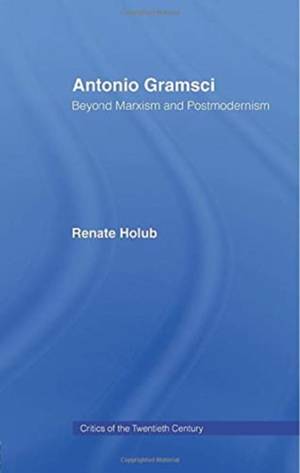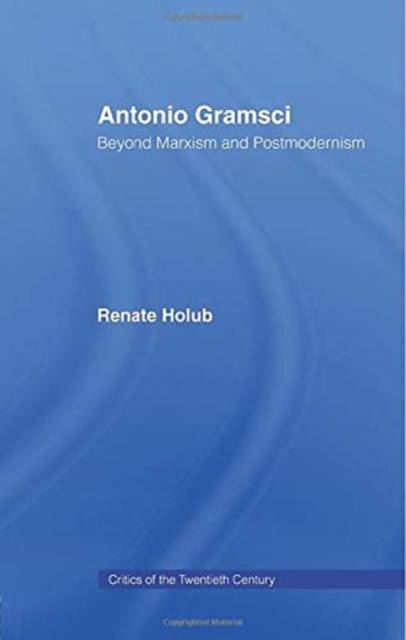
- Afhalen na 1 uur in een winkel met voorraad
- Gratis thuislevering in België vanaf € 30
- Ruim aanbod met 7 miljoen producten
- Afhalen na 1 uur in een winkel met voorraad
- Gratis thuislevering in België vanaf € 30
- Ruim aanbod met 7 miljoen producten
Omschrijving
This book provides the first detailed account of Gramsci's work in the context of current critical and socio-cultural debates. Renate Holub argues that Gramsci was ahead of his time in offering a theory of art, politics and cultural production. Gramsci's achievement is discussed particularly in relation to the Frankfurt School (Adorno, Horkheimer, Benjamin, Bloch, Habermas), to Brecht's theoretical writings and to thinkers in the phenomenological tradition especially Merleau-Ponty. She argues for Gramsci's continuing relevance at a time of retreat from Marxist positions on the postmodern left.
Antonio Gramsci is distinguished by its range of philosophical grasp, its depth of specialized historical scholarship, and its keen sense of Gramsci's position as a crucial figure in the politics of contemporary cultural theory.
Specificaties
Betrokkenen
- Auteur(s):
- Uitgeverij:
Inhoud
- Aantal bladzijden:
- 260
- Taal:
- Engels
- Reeks:
Eigenschappen
- Productcode (EAN):
- 9780415755085
- Verschijningsdatum:
- 24/04/2014
- Uitvoering:
- Paperback
- Formaat:
- Trade paperback (VS)
- Afmetingen:
- 138 mm x 216 mm
- Gewicht:
- 316 g

Alleen bij Standaard Boekhandel
Beoordelingen
We publiceren alleen reviews die voldoen aan de voorwaarden voor reviews. Bekijk onze voorwaarden voor reviews.











